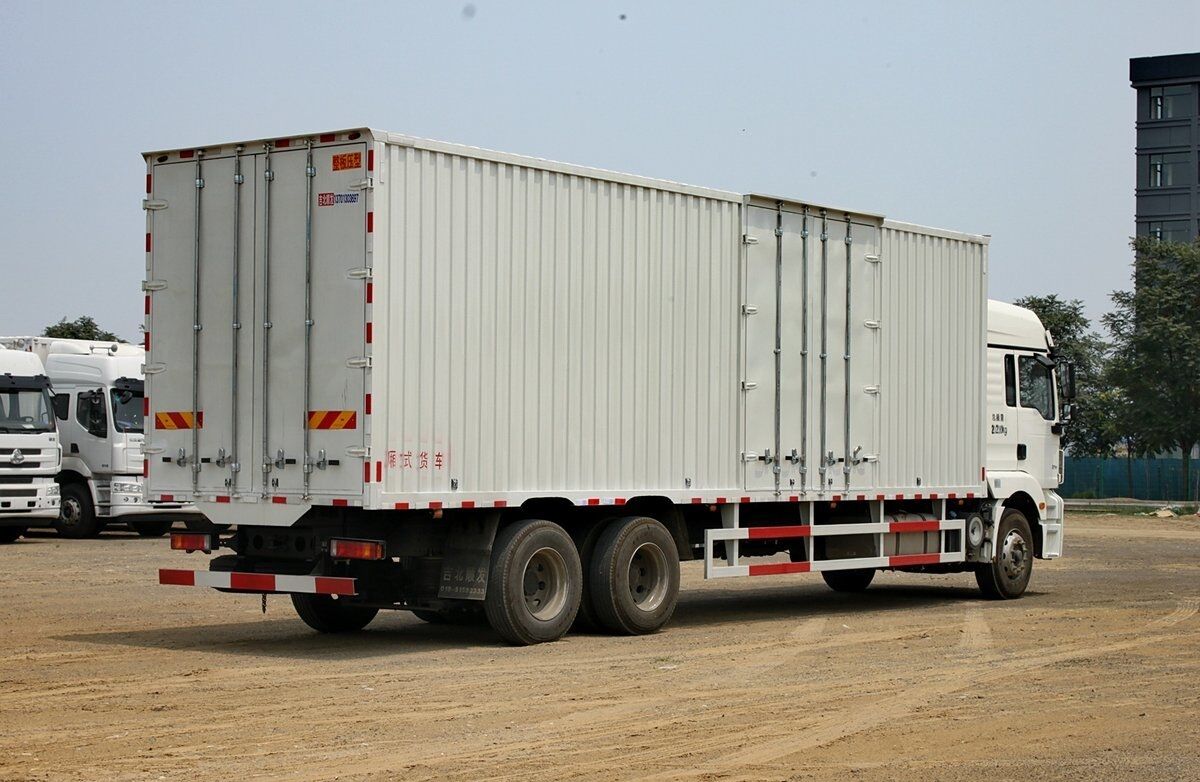Adapting to Modern Transportation Needs
The logistics and supply chain industry continues to evolve with rising demands for speed, reliability, and adaptability. In this fast-changing landscape, cargo transport trucks have become essential tools for businesses across various sectors. These vehicles are not only responsible for carrying massive volumes of goods but are also flexible enough to meet the specific needs of different industries. Their adaptability, durability, and efficiency make them an irreplaceable part of regional and global freight networks.
Cargo transport trucks come in various types, each suited to handle unique logistical challenges. Whether it’s moving perishable goods, oversized machinery, or retail inventory, cargo transport trucks ensure timely and secure delivery. Their integration with modern tracking systems and fuel-efficient technologies further enhances their value in the modern supply chain.
Variety and Customization
Different Types for Different Jobs
Cargo transport trucks are designed in several forms to accommodate a wide range of loads. Flatbed trucks are ideal for transporting construction materials or oversized equipment. Box trucks are frequently used for moving consumer goods and are especially common in urban settings. Refrigerated trucks cater to perishable items, such as food and pharmaceuticals, maintaining precise temperature control during transit.
Tanker trucks, another category of cargo transport trucks, are engineered to carry liquids such as fuel, chemicals, or milk. Each type of cargo transport truck is optimized for specific freight conditions, ensuring that cargo is protected and delivered efficiently.
Industry-Specific Modifications
One of the greatest strengths of cargo transport trucks is their ability to be modified for specific industries. For instance, trucks used in the food industry might include specialized insulation and multiple compartments for different temperature zones. Vehicles used in construction may feature heavy-duty axles and reinforced platforms to handle rough terrain and heavy loads.
By offering industry-specific customization, cargo transport trucks ensure maximum utility while reducing the risks associated with transporting specialized goods. This makes them essential for companies that require reliability across various transport environments.
Operational Efficiency
Route Planning and Logistics
Modern logistics depends heavily on the efficiency of cargo transport trucks. With the help of advanced GPS systems and telematics, companies can plan optimal routes, avoid traffic delays, and reduce idle time. These technologies help in saving fuel, lowering emissions, and improving on-time delivery rates.
Efficient route planning ensures that cargo transport trucks complete more deliveries in less time. Fleet management platforms also allow real-time monitoring of trucks, helping operators make instant adjustments when unforeseen issues arise. This level of control boosts operational efficiency while keeping delivery promises intact.
Fuel Economy and Maintenance
Fuel efficiency is a crucial factor in the operation of cargo transport trucks. Manufacturers now prioritize aerodynamic designs, lighter materials, and energy-efficient engines to minimize fuel consumption. Regular maintenance, tire checks, and engine diagnostics play an important role in preserving fuel economy and extending the life of the vehicle.
Scheduled maintenance helps reduce the likelihood of breakdowns and costly delays. With modern tools, technicians can detect and fix small issues before they escalate, ensuring that cargo transport trucks remain on the road and productive.

Technology Integration
Smart Telematics and Tracking
The integration of smart technologies into cargo transport trucks is transforming logistics operations. Telematics systems gather data on vehicle performance, fuel usage, driver behavior, and location. This data is crucial for improving operational decisions and ensuring that fleets run at maximum efficiency.
Real-time tracking allows businesses and customers to stay informed about the status of deliveries. It also enhances security by deterring theft and enabling rapid recovery of lost or stolen goods. Technology not only increases transparency but also builds trust with clients.
Automation and Driver Assistance
While fully autonomous cargo transport trucks are still in development, many vehicles already come equipped with driver-assist technologies. Features such as adaptive cruise control, lane-keeping assistance, and collision avoidance make the driving experience safer and more efficient.
Automation also plays a role in load management and route scheduling. Software can analyze delivery patterns and suggest optimized workflows, saving time and resources. These advancements allow cargo transport trucks to offer more dependable and cost-effective services.
Environmental Considerations
Emissions and Eco-Friendly Models
Sustainability is becoming a priority for logistics companies, and cargo transport trucks are evolving accordingly. Newer models are designed to meet strict emissions standards, and many companies are exploring electric or hybrid vehicles for local and regional deliveries.
Electric cargo transport trucks produce zero tailpipe emissions and are ideal for urban routes with frequent stops. While range and charging infrastructure remain challenges, the push toward green technology is shaping the future of cargo transport.
Waste Reduction and Load Optimization
Efficient use of cargo space reduces the number of trips needed, thereby lowering emissions. Load optimization tools help distribute weight evenly and maximize space utilization within the truck. This not only saves fuel but also reduces wear and tear on the vehicle.
Companies are also exploring recyclable packaging and sustainable practices to reduce their environmental footprint. Cargo transport trucks play a key role in achieving these goals by serving as the backbone of green logistics strategies.
Versatility Across Sectors
Retail and E-Commerce
The rapid growth of e-commerce has increased the demand for cargo transport trucks capable of handling last-mile and bulk delivery. These trucks support the entire supply chain, from warehouse to doorstep, enabling retailers to meet customer expectations for fast and accurate delivery.
They are particularly effective in managing inventory across regional distribution centers. Cargo transport trucks provide flexibility and reliability, especially during peak shopping seasons when timely delivery becomes even more critical.
Construction and Heavy Industry
Cargo transport trucks also play a vital role in construction and heavy industries. They are used to move large equipment, raw materials, and prefabricated structures to and from job sites. With their robust build and powerful engines, these trucks are tailored to operate under tough conditions.
Specialty cargo transport trucks, such as lowboys or extendable trailers, can carry extremely large or awkwardly shaped loads. This makes them indispensable for infrastructure projects, mining operations, and energy developments.
FAQ
What are the main types of cargo transport trucks?
Cargo transport trucks include flatbed, box, refrigerated, tanker, and specialty trucks. Each type is designed to meet specific transportation needs and cargo requirements.
How do cargo transport trucks improve delivery efficiency?
By using technologies like GPS tracking, telematics, and optimized routing, cargo transport trucks minimize fuel usage and ensure timely deliveries across long and short distances.
Are electric cargo transport trucks widely available?
Electric cargo transport trucks are becoming more common, especially in urban logistics. Their availability is increasing as infrastructure and battery technology continue to improve.
What industries rely most on cargo transport trucks?
Retail, e-commerce, construction, agriculture, food distribution, and heavy manufacturing are some of the key industries that depend heavily on cargo transport trucks.

